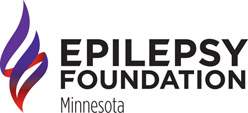Diagnosis and Treatment Options
- If I have seizures, who do I go to see for treatment?
- What can I expect from my neurologist or epileptologist?
- Treatment options
- Is there financial assistance for traveling to seek treatment?
- Medical cannabis and epilepsy
If I have seizures, do I need to see a neurologist who specializes in epilepsy?
It is important to have a doctor who not only knows about epilepsy in depth, but also has a better understanding of treatment for different types of seizures. The treatment and drug therapy often depends on what type of seizure you have. Request that your primary doctor or pediatrician refer you to a neurologist who specializes in epilepsy.
MINNESOTA IS HOME TO THREE MAJOR EPILEPSY CENTERS: the University of Minnesota–MINCEP Epilepsy Care, Mayo Clinic and Minnesota Epilepsy Group. Specialty care is also available at Gillette Children's Specialty Healthcare, Minneapolis Clinic of Neurology, Noran Neurological Clinic and more. For more information on the different levels of epilepsy centers click here.
What can I expect from my neurologist or epileptologist?
The epilepsy specialist will work with you:
| Verify that seizures are epileptic in nature. (Epilepsy isn't always the case especially if the seizure happens only once). For information on the diagnostic methods and tools, click here. | |
| Define seizure types and the epilepsy syndrome. (This will enable the doctor to discern which treatment is best for you. Different seizure types sometimes require different medicines.) | |
| Examine the possible causes of epileptic seizures and identify trigger factors. | |
| Establish an early treatment plan based on #1 to #3 and discussions with the patient and family. | |
| Monitor seizure control and recognize the adverse effects that seizures and treatment have on quality of life. (Make sure that the plan and strategy taken is right for you. Tell your doctor(s) any concerns that you have regarding the treatment and/or seizures). | |
| If the first treatment plan does not work, talk to your physician about exploring other treatment options. |
Treatment options
MEDICATION
The national Epilepsy Foundation website has more information about medications, side-effects, generics, etc.
For information about specific medicines, use the Medications Database.
SPECIAL DIETS
The Ketogenic Diet burns fat instead of glucose and is fasting induced; it must be strictly managed and maintained daily. 80% of the calories come from fat.
The Modified Atkins Diet requires carbohydrates to be monitored. The Low Glycemic Index Treatment monitors how food raises blood glucose levels. It is based more on portion control. Carbohydrates are increased with a low Glycemic index. Each diet is made to fit each individual and should be done under medical supervision.
RESPONSIVE NEUROSTIMULATION
Responsive neurostimulation or RNS® is a device that directly stimulates the brain to help stop or control seizures.
The stimulator is surgically implanted in the skull that is attached to one or two EEG leads. These leads are implanted in or on top of the brain where the seizures begin.
SURGERY
Surgery is an option for some kinds of seizures. There are various types of surgeries.
More information about surgeries for epilepsy.
VAGUS NERVE STIMULATION
This type of treatment is designed to prevent seizures by interrupting the process of seizure development in the brain.
VNS involves implanting a small, flat battery in the wall of the chest, linked by electrodes to the large vagus nerve in the neck. Tiny electrical signals are programed to go into the brain via the vagus nerve.
Compassionate access for those living with epilepsy is a relatively new treatment option, and because of that there are many questions surrounding it. Here are answers to some of the more common questions about this treatment option.
J. Kiffin Penry Patient Travel Assistance Fund
Travel scholarships are available to individuals who have had to travel more than 50 miles from their home to receive FDA-approved medical care and/or treatment for their epilepsy/seizure disorder, but lack adequate financial resources to meet the cost of this travel without bearing financial hardship. Here are eligibility and program guidelines.
